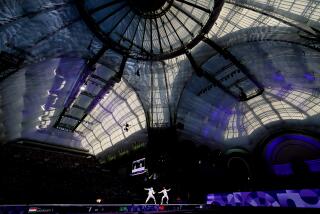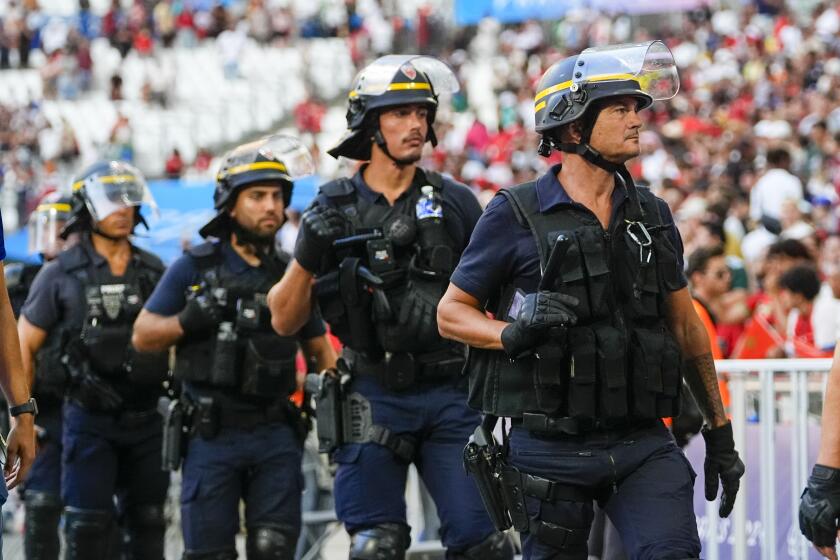Athletes without borders
Anthonie Linares hasn’t been to Mexico, doesn’t speak Spanish and doesn’t know the words to the Mexican national anthem.
But as he stood in a tunnel beneath the Home Depot Center in Carson on Tuesday, with a pair of gold medals hanging around his neck, the 16-year-old from San Jose said he could imagine himself someday climbing atop the podium at a major international competition as a strange flag is raised and an incomprehensible anthem played.
“My dad would be proud of me,” said Linares, whose father was born in Acapulco. “Knowing that I’m wrestling for the Mexican team, he’ll probably be more proud of me.”
The possibility was something neither Linares nor his father was aware of until the high school wrestler was invited to take part in the Sports Games for Mexicans Abroad, a multidisciplinary athletic competition for children of Mexican heritage living in the U.S., organized and sponsored by the Mexican government.
Mexico has long sought athletes in the U.S., home to more than 30 million Mexican Americans. The country’s top two pole vaulters live and train on this side of the border, for example, as did five members of Mexico’s national boxing team, a wrestler and two water polo players from the last Pan American Games.
But after Mexico’s disappointing performance in the 2008 Beijing Olympics, when it won just three medals, Bernardo de la Garza, the new head of Mexico’s sports ministry, made the recruitment of Mexican Americans a priority.
“There is talent there that can bring us medals,” said De la Garza, who studied at UCLA. “We are all Mexicans. Living abroad is because of different circumstances. But they have all the legal rights to compete.”
The Mexican Constitution confers nationality on the children of Mexican-born parents, making Linares and the other 500 athletes who registered for the Mexico Games event eligible to compete. De la Garza had hoped for a larger turnout -- competition in five sports had to be canceled due to a lack of entrants -- but said he anticipated growing pains.
“We cannot look at it just for 2010. It has to become a system. And as a system it will get better,” he said.
At Tuesday’s opening ceremonies, De la Garza read a letter from Mexican President Felipe Calderon, who pledged support for the Games through the end of his term in 2012. By then, De la Garza hopes the event will have gained enough momentum to continue no matter who is in power.
“This has to be growing continuously. We have to stick with this project,” De la Garza said. “If we look at the history of the medals that have been lost because of the absence of a network to bring those Mexicans living abroad to compete for Mexico, the most famous one probably is Oscar De La Hoya. And now Henry Cejudo.”
Cejudo, born in Los Angeles to undocumented Mexican immigrants, won an Olympic gold medal in wrestling for the U.S. Cejudo shared the dais with De la Garza at Tuesday’s event and acknowledged afterward that no one ever approached him with the idea of competing for Mexico.
Not that it would have mattered.
“I’m American,” said Cejudo, who famously wrapped himself in the Stars and Stripes after winning a gold medal in Beijing two years ago. “I’m very patriotic. I was raised here.
“I definitely would love to help out. I love the Mexican people. But I’m American.”
More to Read
Go beyond the scoreboard
Get the latest on L.A.'s teams in the daily Sports Report newsletter.
You may occasionally receive promotional content from the Los Angeles Times.






